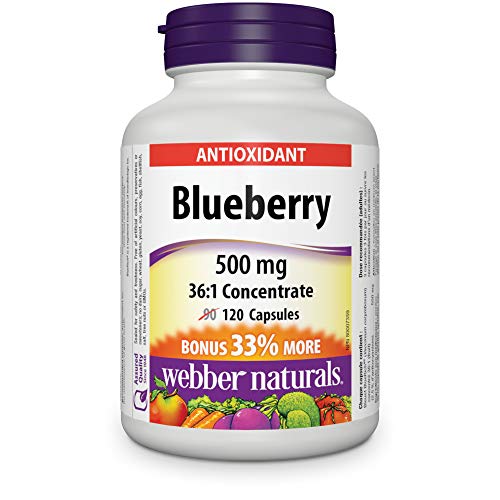Introduction: The Power of Omega-3 Fatty Acids in Modern Health
Omega-3 fatty acids belong to the category of polyunsaturated fats, which are considered “essential” for health [4 ].Our bodies cannot produce omega-3s independently, making dietary intake or supplementation crucial for well-being.There are three primary types of omega-3s, each offering unique benefits for heart, brain, and joint health.
ALA (alpha-linolenic acid) is found in plant-based sources like flaxseeds, chia seeds, and walnuts effectively.EPA (eicosapentaenoic acid) is abundant in fatty fish and plays a key role in reducing inflammation significantly.DHA (docosahexaenoic acid) is critical for brain development, cognitive function, and maintaining vision health [5 ].
For those who dislike fish, high-quality supplements like Webber Naturals Omega-3 provide concentrated EPA and DHA. Plant-based ALA can complement your intake but is best paired with fatty fish or supplements for optimal results. Fortified foods like eggs, yogurt, and milk may also serve as supplementary sources of omega-3 fatty acids.
Omega-3s are more than just a fad; they are essential building blocks for overall well-being consistently. Research supports their role in promoting heart health, supporting brain function, and managing inflammation effectively. Additionally, omega-3s may contribute to improved mood regulation and joint health over time [6 ].
Choosing the right omega-3 source is vital for maximizing their health benefits effectively and naturally. Fatty fish remains the most potent source of EPA and DHA, while supplements cater to dietary limitations reliably. High-quality options like Webber Naturals Omega-3 offer a convenient way to meet your daily omega-3 needs.
Why Are Omega-3 Fatty Acids So Important?
Omega-3 fatty acids belong to a category of fats known as polyunsaturated fatty acids. What makes them unique is that they are considered “essential,” meaning our bodies cannot produce them independently. Consequently, obtaining omega-3s through our diet or supplementation is crucial for maintaining optimal health [4 ].
Let’s break down the key components of omega-3 fatty acids:
Types of Omega-3 Fatty Acids
- ALA (Alpha-Linolenic Acid): Found primarily in plant sources like flaxseeds, chia seeds, walnuts, and certain vegetable oils (canola, soybean). Our bodies can convert a limited amount of ALA into the other crucial forms of omega-3s [5 ].
- EPA (Eicosapentaenoic Acid): Primarily found in fatty fish like salmon, mackerel, sardines, herring, and anchovies. EPA plays a key role in heart health and reducing inflammation [6 ].
- DHA (Docosahexaenoic Acid): Also found in fatty fish, algae, and krill. DHA is a vital structural component of the brain and eyes, playing a crucial role in brain development, cognitive function, and vision [7 ].
For those who dislike fish or struggle to meet their omega-3 needs through diet alone, high-quality fish oil supplements like Webber Naturals Omega-3 offer a concentrated dose of EPA and DHA [8 ]. Plant sources (ALA) provide valuable omega-3s but are best complemented with fatty fish or supplements to maximise your EPA and DHA intake.
The Benefits of Omega-3 Fatty Acids
Omega-3 fatty acids have transcended their initial recognition as a niche health supplement to become a cornerstone of modern wellness. This transition is fueled by a growing body of research highlighting their diverse and potent health benefits. Let’s delve deeper into some key areas where omega-3s have demonstrated significant potential.
Champions of Heart Health
- Lowering Triglycerides: Omega-3s, particularly EPA, have been shown to effectively reduce triglyceride levels in the blood. Triglycerides are a type of fat that, in excess, can contribute to the development of heart disease [9 ]. By lowering triglycerides, omega-3s help create a healthier lipid profile, reducing the risk of cardiovascular complications.
- Regulating Blood Pressure: Studies suggest that omega-3s may play a role in lowering blood pressure, especially in individuals with mild hypertension [10 ]. This potentially reduces the strain on the heart and circulatory system, contributing to overall cardiovascular health.
- Combating Inflammation: Omega-3s possess potent anti-inflammatory properties that can help combat chronic low-grade inflammation, a significant risk factor for heart disease [11 ]. By reducing inflammation, omega-3s may help prevent the development of plaque buildup in arteries, a major contributor to heart attacks and strokes.
Guardians of Brainpower
- DHA: The Brain Builder: DHA, a prominent type of omega-3, is a critical structural component of the brain, making up a significant portion of the gray matter. Adequate DHA intake throughout life is crucial for optimal brain function, development, and cognitive health [12 ].
- Cognitive Function and Memory: Studies have shown that sufficient omega-3 intake, particularly DHA, may improve cognitive function, memory, and learning in individuals of all ages [13 ]. This benefit is particularly significant for older adults, as it may help with age-related cognitive decline and potentially mitigate the risk of dementia.
Supporting Mood and Mental Health
The emerging link between omega-3 fatty acids and mood regulation is promising. Preliminary studies suggest that individuals with adequate omega-3 intake may experience lower rates of depression and anxiety symptoms [14 ]. Additionally, their anti-inflammatory properties may contribute to improved mood, as chronic inflammation has been linked to mood disorders.
Allies for Joint Health
Omega-3s, particularly EPA, possess potent anti-inflammatory properties. This can be beneficial for individuals suffering from chronic inflammatory conditions like rheumatoid arthritis and osteoarthritis. By reducing inflammation in the joints, omega-3s may help alleviate joint pain, stiffness, and swelling, potentially improving mobility and quality of life [15 ].
Choosing an Omega-3 Source
When selecting your primary source of omega-3 fatty acids, keep in mind that fatty fish remains the most potent and readily available form of EPA and DHA. High-quality supplements like Webber Naturals Triple Strength Omega-3 900mg EPA/DHA provide a valuable alternative for those who need a more concentrated source or cannot meet their needs through diet alone.
Why Choose Webber Naturals Omega-3?
- Potency Tailored for Optimal Support: Each softgel provides 900mg of omega-3s, including 600mg EPA and 300mg DHA, catering to higher omega-3 needs [16 ].
- Commitment to Quality and Sustainability: Sourced from wild-caught fish and purified through molecular distillation, Webber Naturals ensures a contaminant-free product while adhering to sustainable fishing practices [17 ].
- Enhanced Absorption and Convenience: The enteric coating protects omega-3s from stomach acids, ensuring optimal absorption and minimizing any fishy aftertaste [18 ].
Scientific Evidence Backing Omega-3 Fatty Acids
The health benefits of omega-3 fatty acids, particularly EPA and DHA, are supported by a growing body of scientific evidence. Below are some key findings:
- Heart Health: A 2020 meta-analysis published in the Journal of the American Heart Association concluded that omega-3 supplementation significantly reduced triglyceride levels [19 ].
- Brain Health: A 2018 review in Alzheimer’s & Dementia found that higher omega-3 intake, particularly DHA, was associated with improved cognitive function in older adults [20 ].
- Mood Regulation: A 2017 meta-analysis in Molecular Psychiatry found that omega-3 supplementation resulted in moderate reductions in symptoms of depression [21 ].
Final Thoughts: Is Webber Naturals Omega-3 Right for You?
While omega-3 fatty acids offer numerous benefits, individual needs and responses may vary. Therefore, consulting with your healthcare professional is paramount in determining if omega-3 supplementation is suitable for you, considering your unique health history, existing conditions, and overall well-being.
References:
Frequently Asked Questions:
The optimal daily intake of Omega-3s varies depending on your age, health status, and individual needs. The American Heart Association recommends consuming at least 500 mg of combined EPA and DHA daily for most healthy adults. However, higher doses may be beneficial for individuals with specific health conditions.
Consulting your healthcare professional is crucial to determining the appropriate dosage for you. They can consider your individual needs and circumstances to recommend the most suitable approach.
Omega-3s are crucial for foetal and infant development. However, consulting with your healthcare professional before taking any supplements, including Omega-3s, during pregnancy or breastfeeding is essential. They can advise you on the safety and appropriate dosage based on your specific situation.
atty fish like salmon, tuna, sardines, and mackerel are excellent natural sources of Omega-3s. However, achieving adequate intake solely through diet can be challenging. Omega-3 supplements can be a valuable option for individuals who struggle to meet their daily needs through dietary sources alone.
Webber Naturals Triple Strength Omega-3 900mg EPA/DHA is available at various health food stores, online retailers, But you can visit You can visit the Webber Naturals website to find a retailer near you or purchase directly from them online.
Yes You can visit on amazon india: the follwing products are available
1-Webber Naturals Coenzyme Q10 200 mg, 60 softgels Bonus Size.
2-Webber Naturals Blueberry 36:1 Concentrate Capsule, 500mg 120 Capsules
3-Webber Naturals Webber Naturals Melatonin, 5 Mg Gummy 90 Count






